Not sure about choosing a charger? Try our revamped Charger Finder!
Try our revamped Charger Finder!
- For Installations
- All our chargers come with a 1 year warranty
- Free Shipping
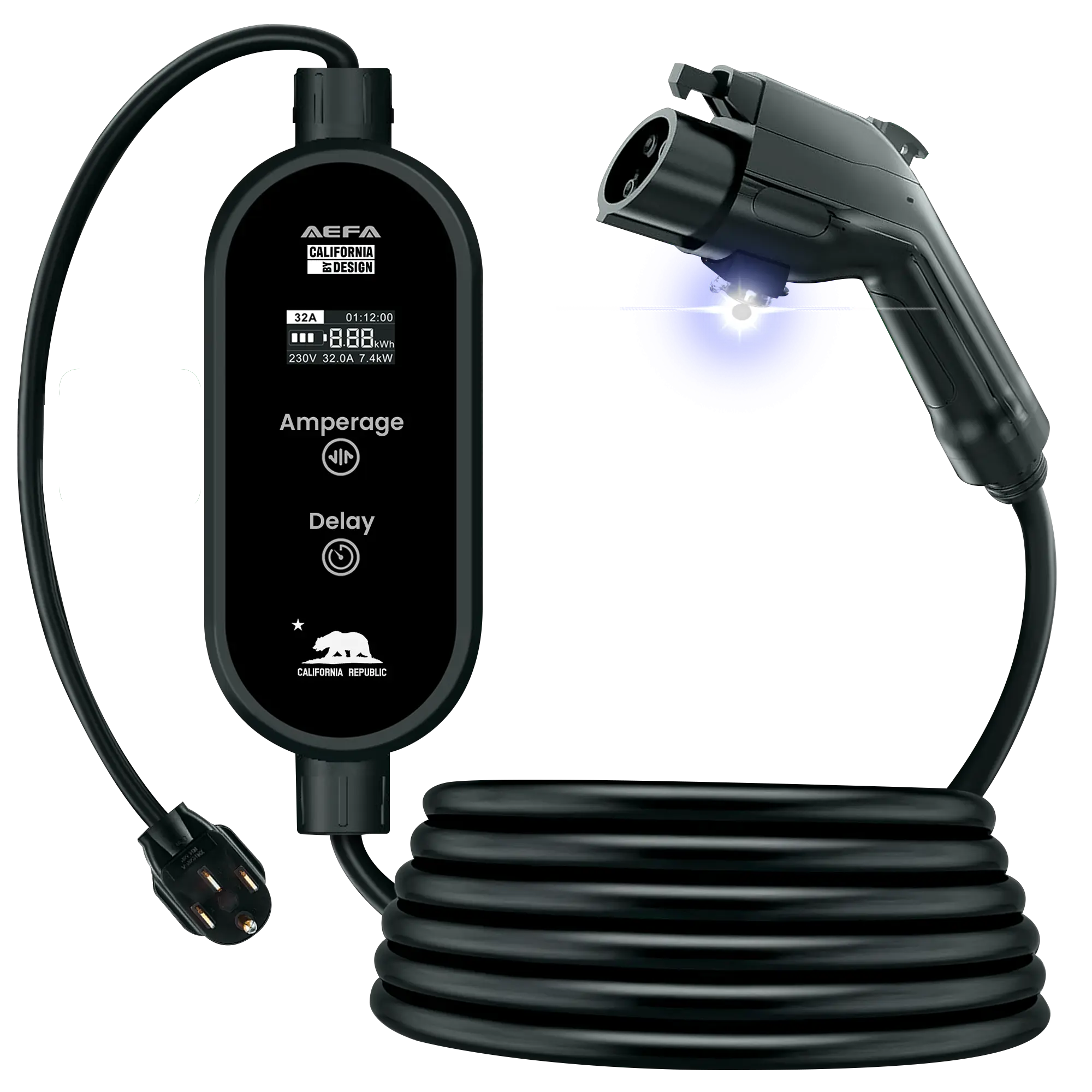

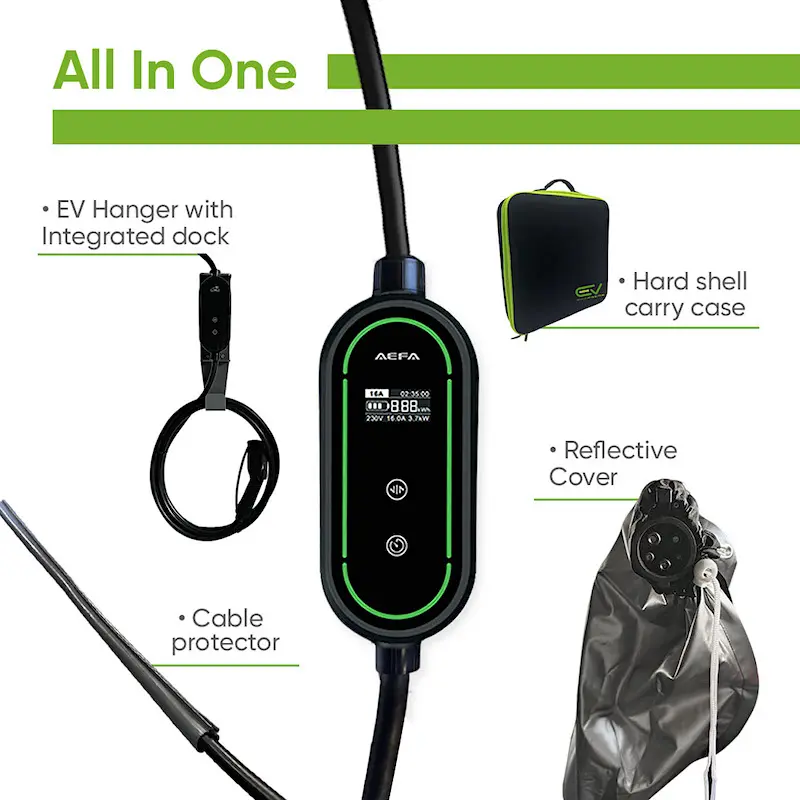
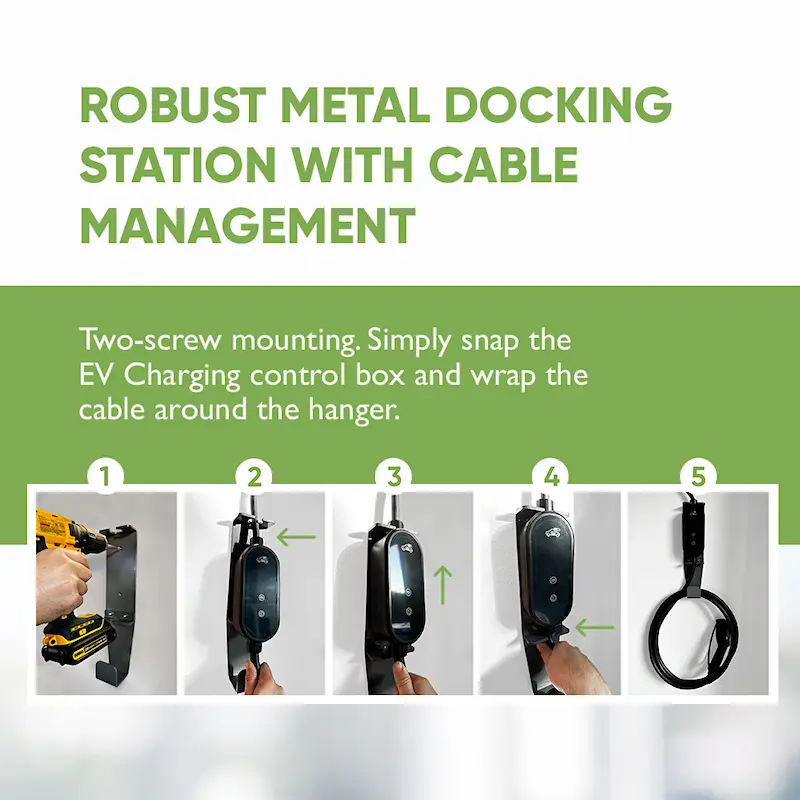
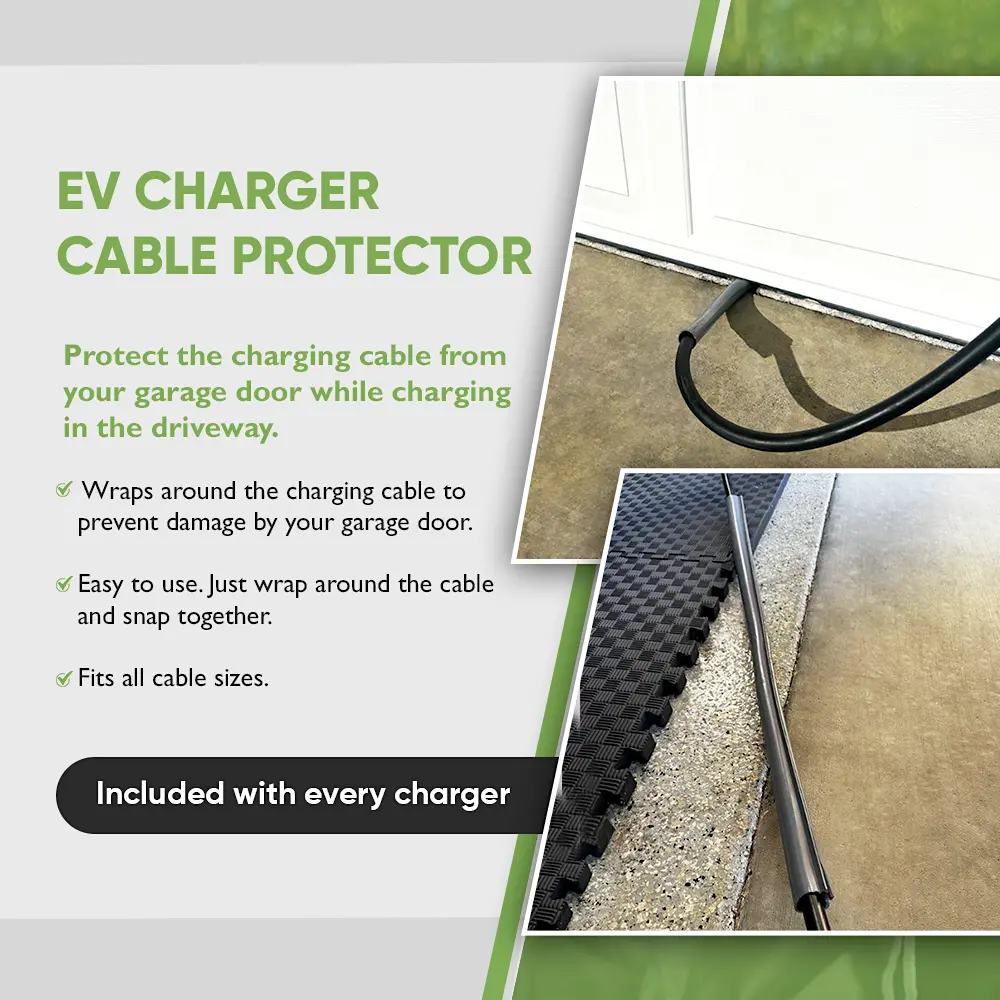
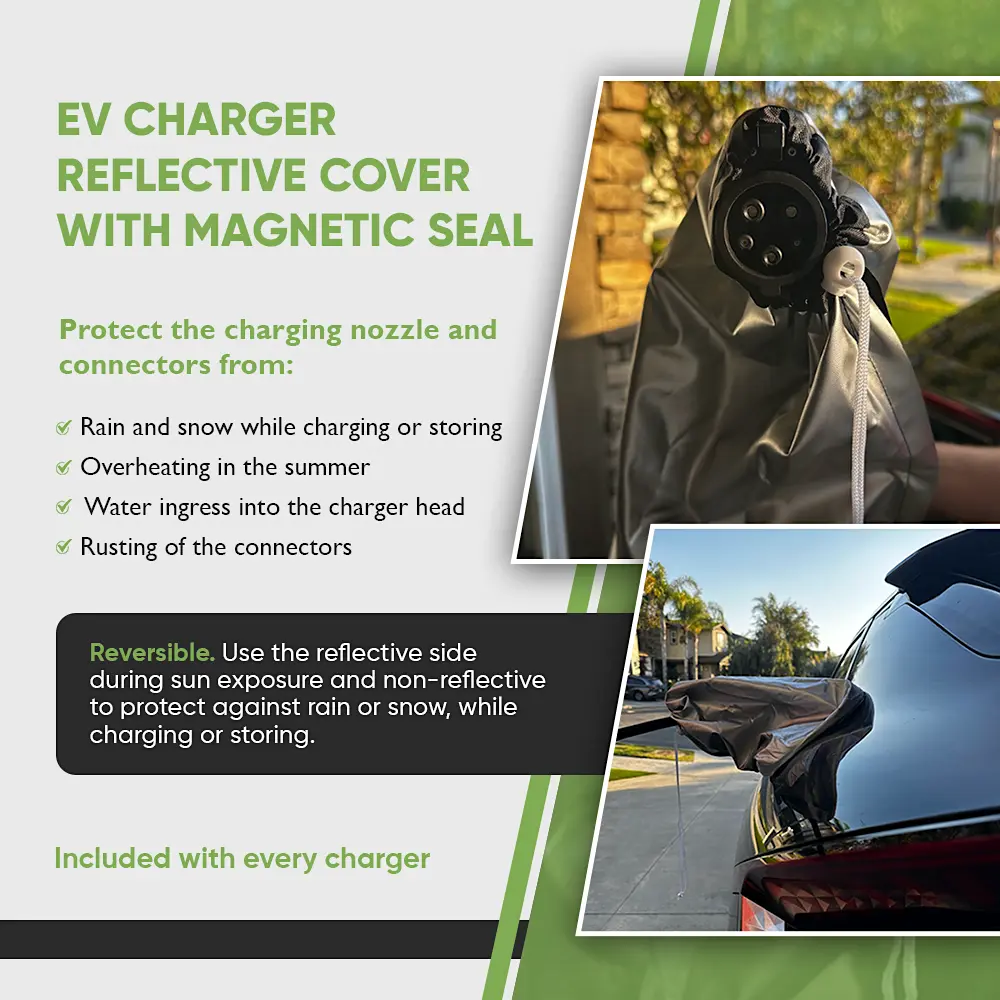
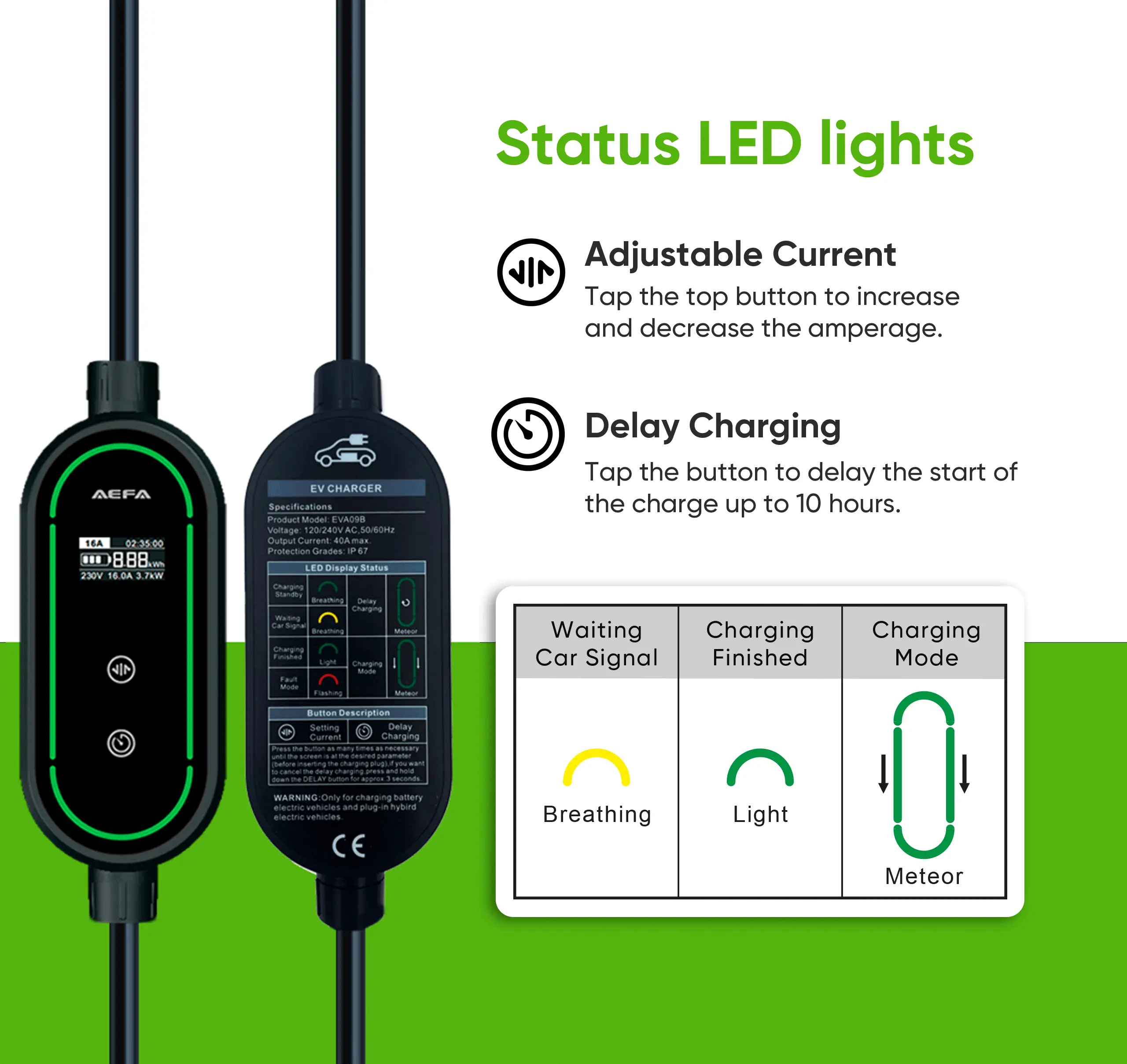
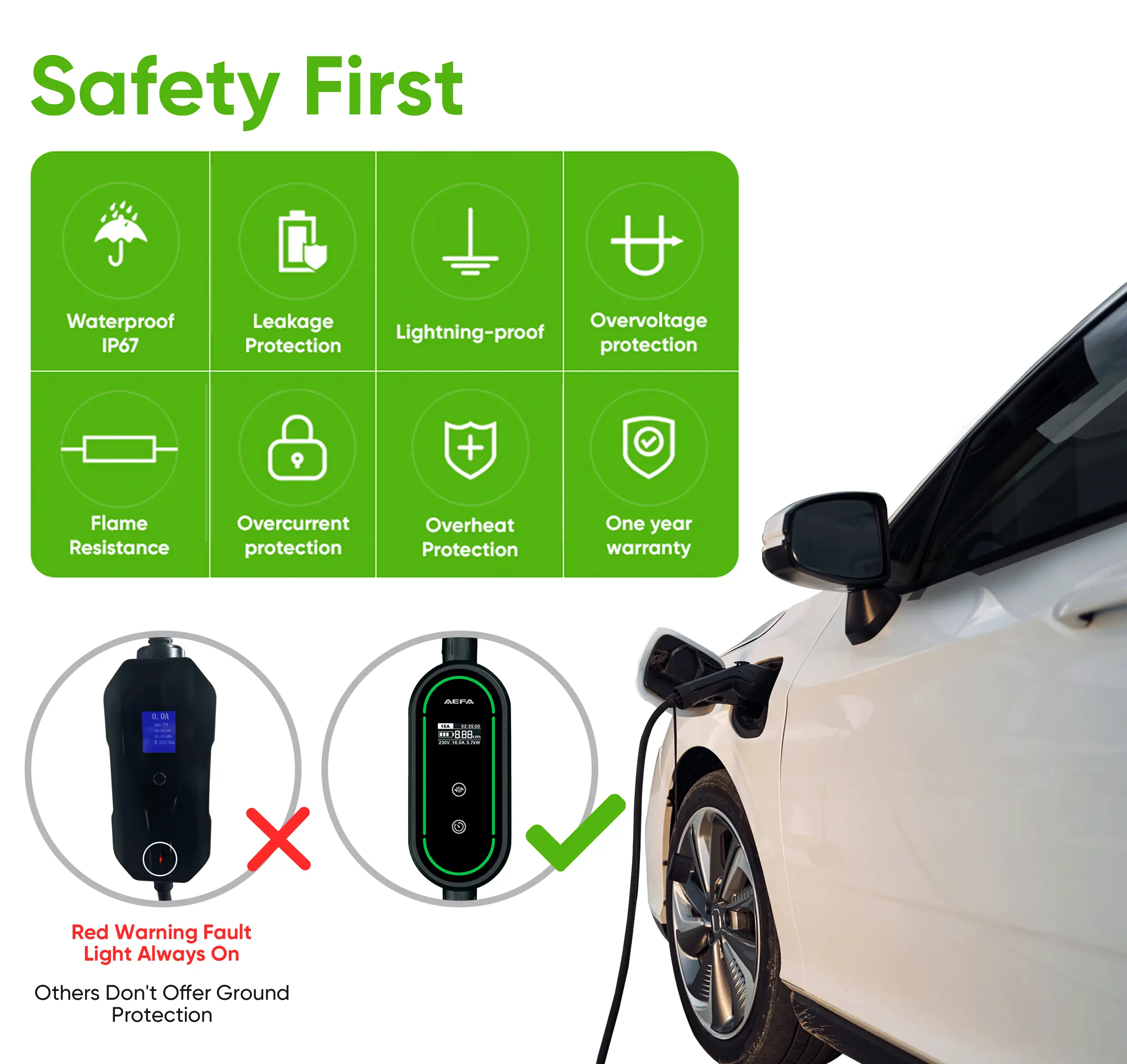
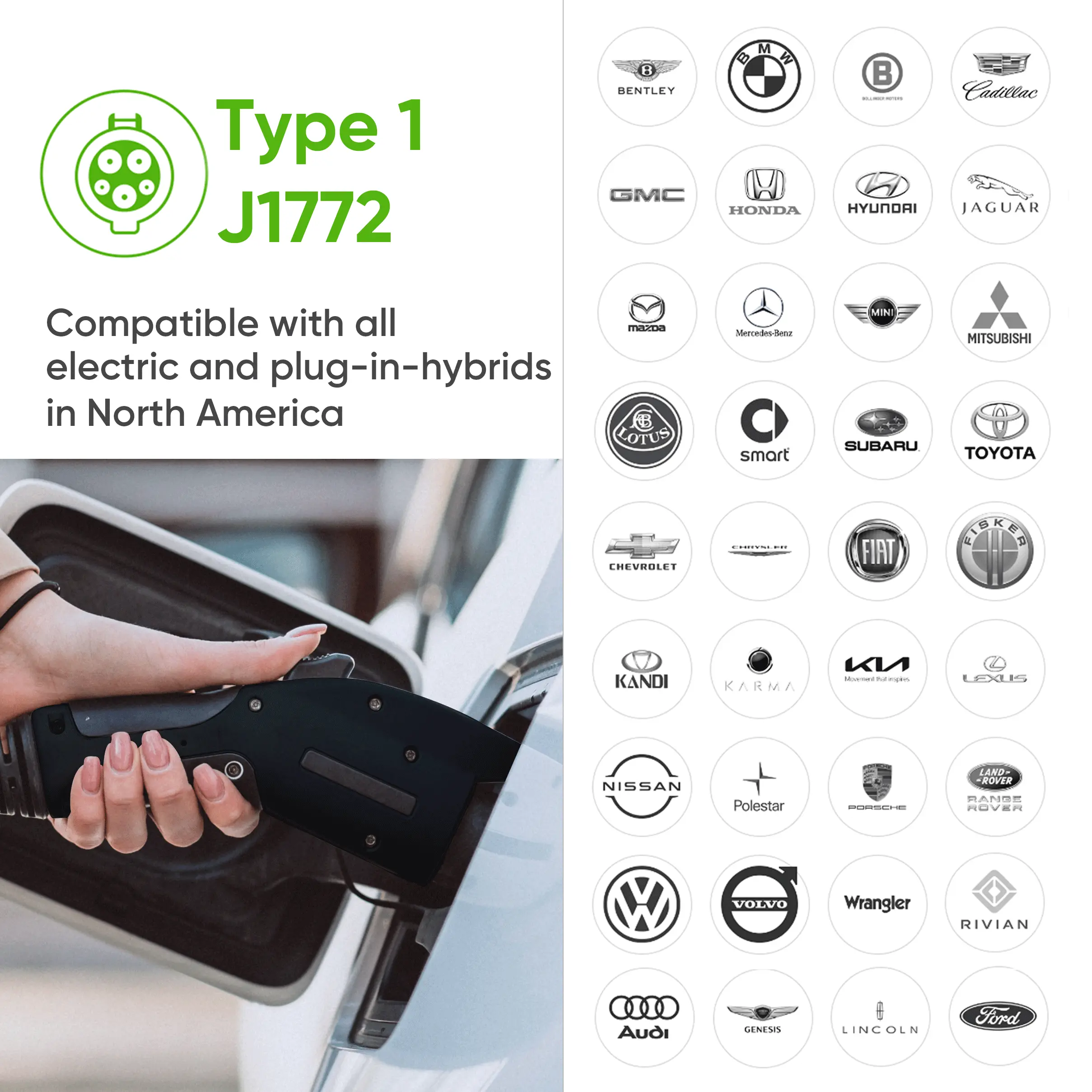
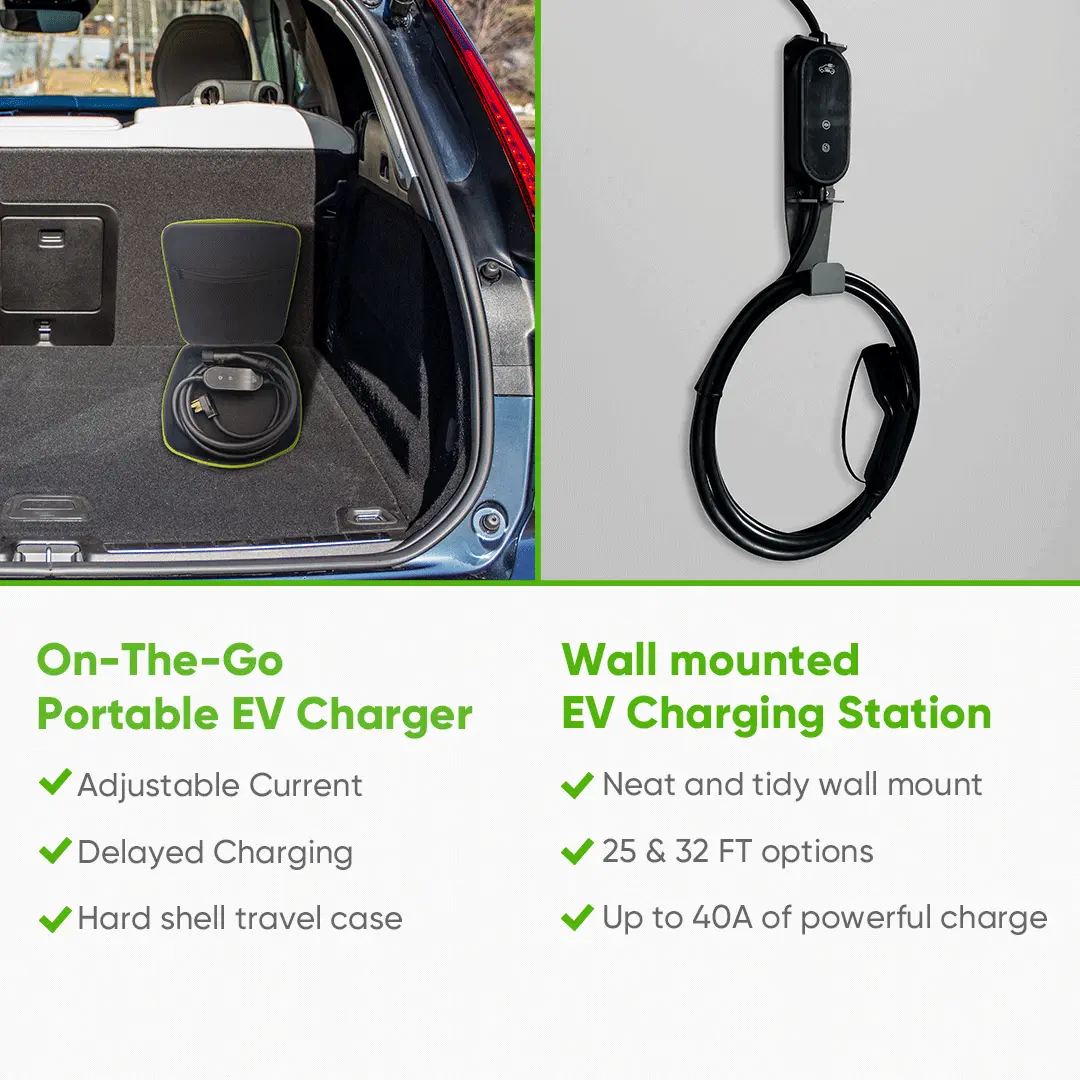
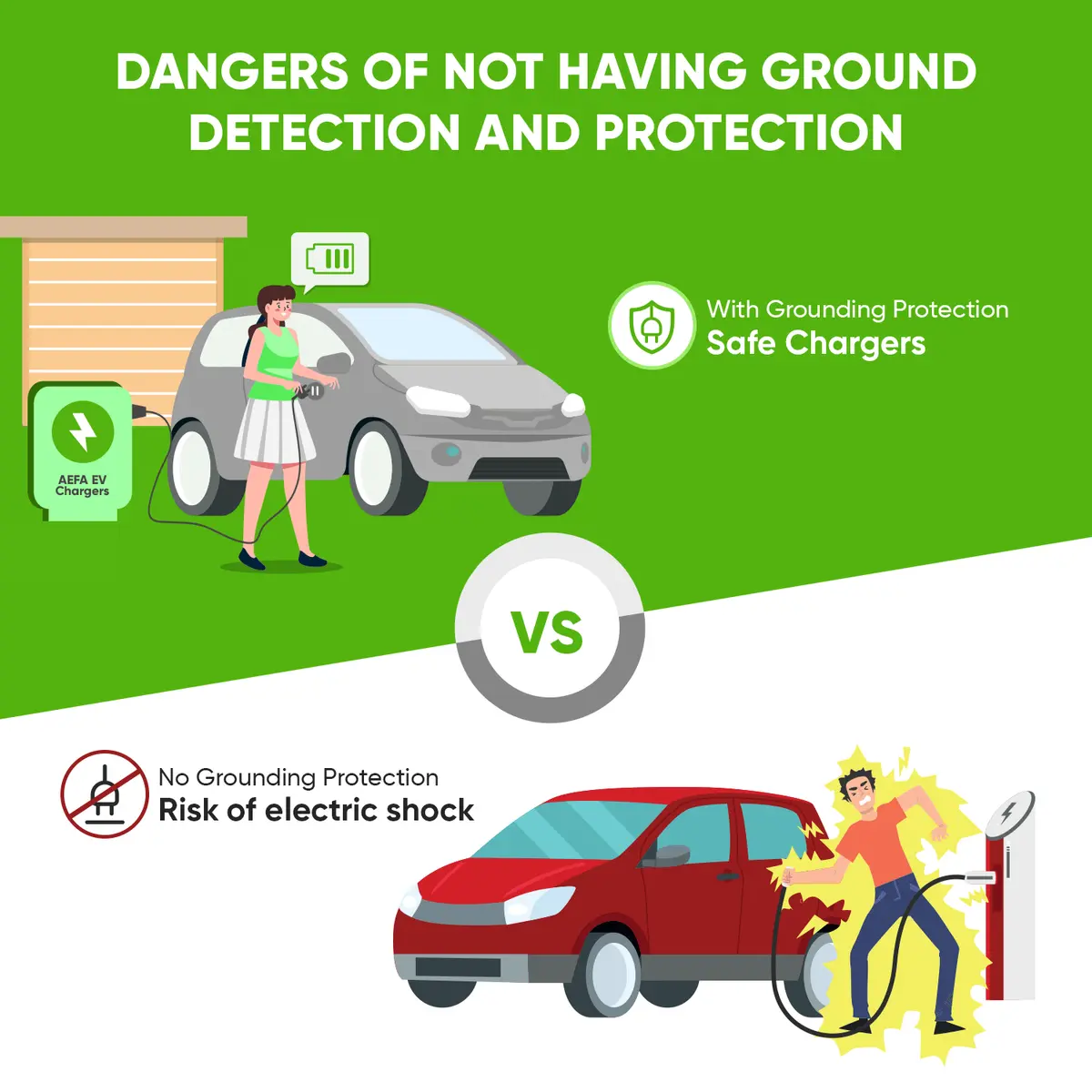
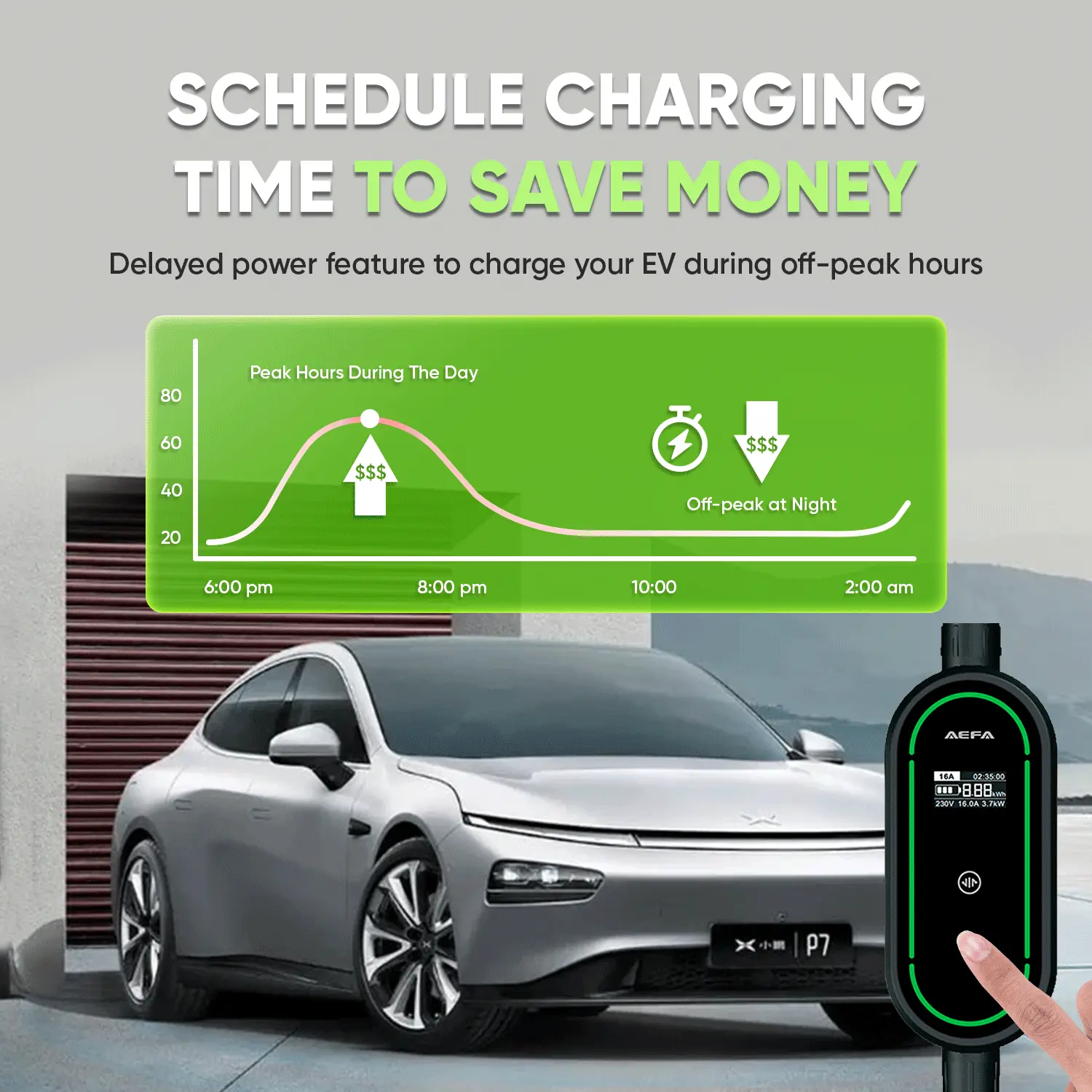
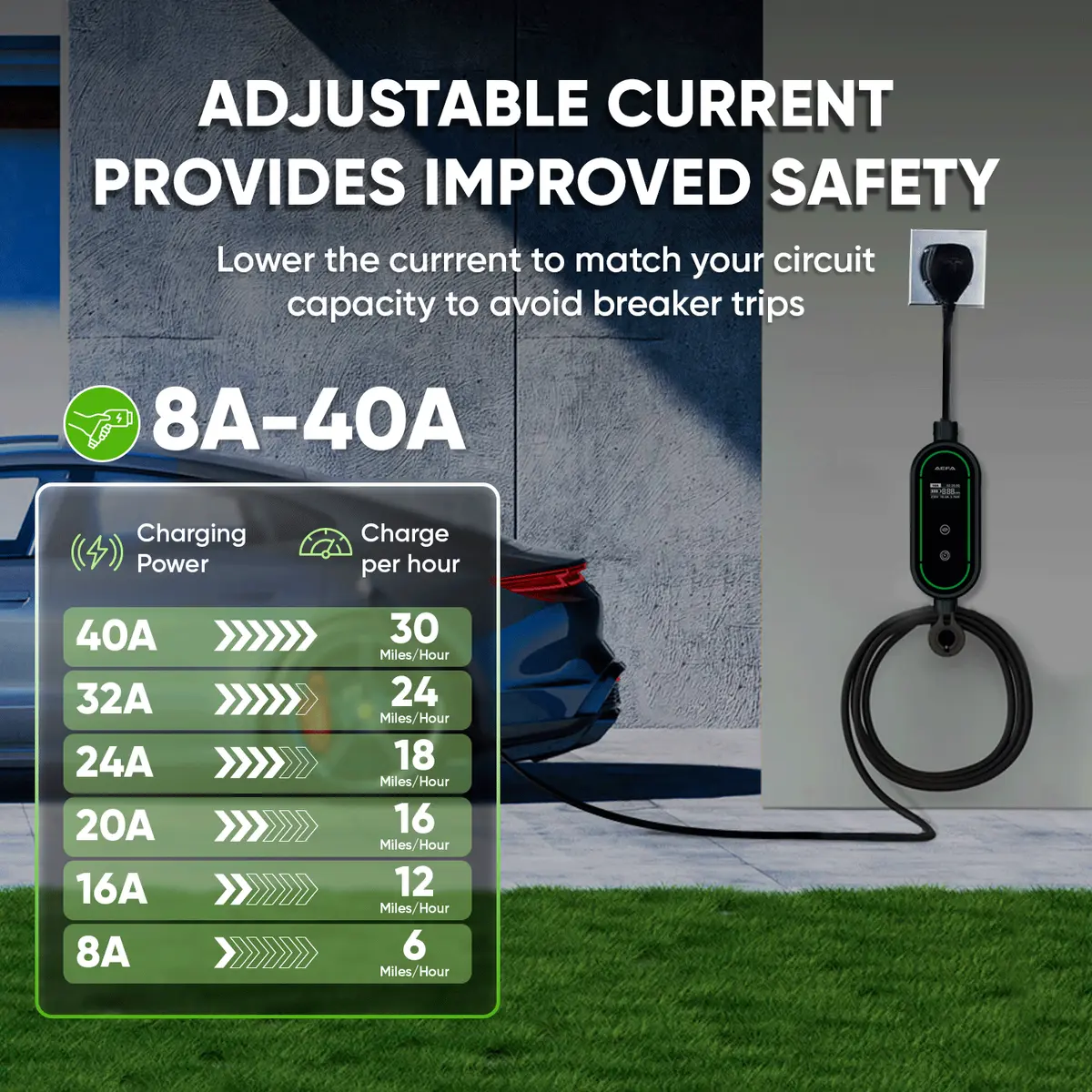
Starting at $120
This product is out of stock.
Order in the next hrs mins for delivery between 00 and 00!
| 3 Pin Plugs | NEMA 5-15 Socket (120V), NEMA 6-30, NEMA 6-20 (240V) |
| 4 pin Plugs
Rating Rated Currents |
NEMA 14-50, NEMA 6-50, NEMA 14-30, NEMA L14-40 (240V)
Indoor/Outdoor rated for installation anywhere 12, 16, 20, 24, 32 and 40 amp |
| Weight | 14 pounds |
| Connector Type | Type 1 (SAE J1772) lockable. Fits all cars including Tesla with Tesla supplied adapter |
| Control Box Dimensions | 2 inches deep x 3.5 inches wide x 8 inches long |
| Cable Length | Convenient 25 feet or 32 feet (total charging length from wall socket 26 feet and 34 feet) |
| Protection | IP67 (international standard EN 60529) |
| Assembly
Temperature |
None
22 degrees Fahrenheit to 140 degrees Fahrenheit |
| Warranty | 12 months |
| Input voltage | 208-240 Volts alternating current (AC), single phase |
| Approvals | CE, CB & TUV Approved |
| Material | Premium TPU with thin and lightweight cable |
| Compatibility | Suitable for all U.S. and Canadian EVs (SAE J1772 inlet) |
| Integrated DC Leakage Protection | Type B residual current detection |
| Surge Protection | Over/under voltage, overload protection, short circuit protection, leakage current protection, over
temperature protection, lightning protection, active ground detection |
| Ground Monitoring | Yes |
| Residual Current Detection | Alternating current 30 milliamps (mA), Direct Current 6 milliamps (mA)
*Requirements of GB 14048.2 – 2008, GB 16916.1-2014 and GB 22794-2008 |
| Features | LED indicator lights to manage charging errors |
The Audi e-tron first hit the roads in early 2010 and is a brand name to describe Audi’s range of electric and plug-in hybrid vehicles.
The current Audi e-tron range combines luxury, performance and style. The range includes the Q4, Q6 and Q8, GT and Sportback versions on the pure electric side and the Q5 on the plug-in hybrid side. Audi e-tron EV chargers are extremely expensive and in the same way as you may charge a vehicle at any commercial charging station, you may also choose a different residential option when selecting an EV charger for your audi e-tron.
The range of e-tron vehicles is well suited to level 2, 240 volt EV Chargers, especially as battery sizes are increasing and more power is needed to ensure a quick, overnight charge and avoid the pain and inconvenience of level 2 EV charging.
| Battery Size |
|---|
| 89-kWh to 106-kWh |
| DC Commercial Charging compatibility |
|---|
| Yes |
| Average Cost per Charge |
|---|
| $45 to $50 |
| Level 2 charging |
|---|
| Yes |
The table below represents average charge times for the audi e-tron range based on the average battery size. Please allow a variation of +/-10% based on your specific vehicle. The table below shows level 1 and level 2 EV Charging times for audi e-trons.
| Plug Type |
|---|
| Level 1 – 5-15 (regular 3 pin) 120 volts |
| Level 2 – 14-30 (4 pin electric dryer type) 240 volts |
| Level – 14-50 (4 pin EV Plug) 240 volts |
| Battery Size (kWh) |
|---|
| 95 kWh |
| 95 kWh |
| 95 kWh |
| Cost per Charge |
|---|
| 1.9 KW/hour @ 12 amps |
| 5.5 KW/hour @ 24 amps |
| 9.6 KW/hour @ 40 amps |
| EV Charge Time |
|---|
| ~47 hours |
| ~18 hours |
| ~9.5 hours |
The table above includes the fastest level 2 EV charging for an audi e-tron
The audi e-tron currently uses a Type 1 J1772 charging standard, which is the current charger head that connects into the charging port of the e-tron. Depending on the vehicle, the charge rate i.e. how quickly you can charge the vehicle irrespective of the power of the EV Charger is 10KW/hour, which is 40-48 amps 208-240 volts. A J1772 EV charger at any residential or business destination EV charging location.
Audi U.S. has announced that it will switch from the J1772 to NACS in the future but the exact migration dates for a J1772 Connector NACS connector has not been confirmed. Please check your vehicle.
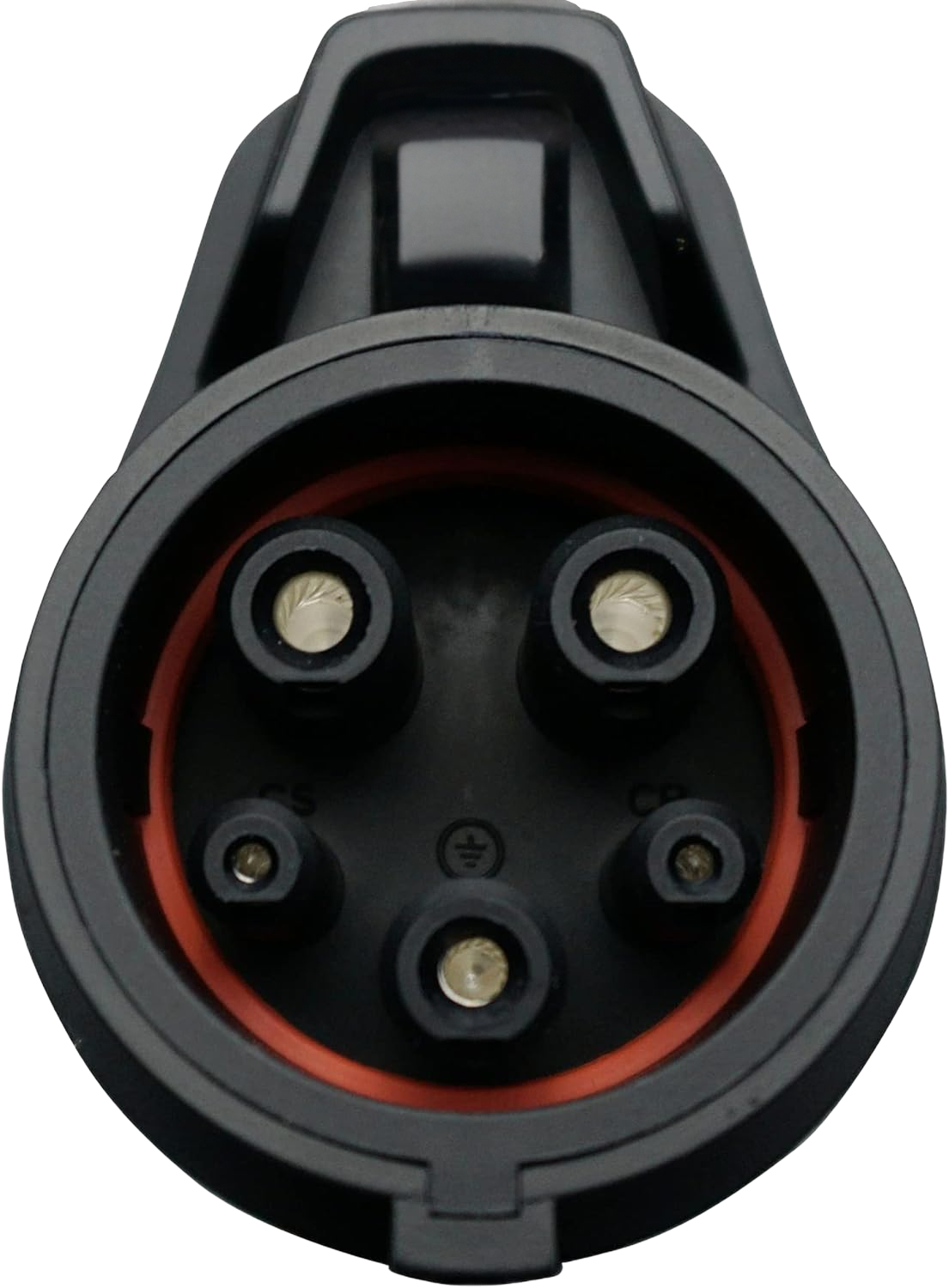
Audi e-tron owners we speak to generally opt for home, residential EV charging. Whilst car manufacturers provide charging credits or free access to certain commercial EV charging stations, they are generally not reservable and very busy, especially at the weekend.
Charging an EV is much cheaper at home since your residential EV charging rate is a lot less than a commercial charging rate. Even in California, super off peak charging rates can be as low as 10 cents per kilowatt hour, meaning an average overnight charge cost of ~ $10. That same charge at a commercial chagrin station would be around $30 to $40.
Most commercial EV charging stations will work with your audi. For commercial charging, the commercial charging app should be CCS1, since Audi is compatible with the J1772 / CCS1 commercial charging standard. In your app, look for commercial CCS 1 EV chargers. You can also charge at any level 2 commercial charging location such as Gyms, Hotels, MedSpas and Grocery Stores where they are generally found. Of most EV charger types for an audi e-tron, the 14-50 (EV plug type) EV chargers can also be used in campgrounds and RV parks. Audi e-tron level 2 14-50 EV plug types are increasingly installed in new homes or by other EV owners at existing residences.


The costs of charging an e-tron vary significantly. The significant variables are time of day, State (California is more expensive) and if any EV tariffs are available. The tabulation below is re-cap of charge times and rates for audi e-tron assuming a mid size battery. The tables use U.S. current averages for residential electricity supply of 20 ¢/kWh. Below assumes a 226-mile EV driving range and a 100 kWh battery size.
| Place | |
|---|---|
| Home (empty to full)* | Commercial Chargers ** |
| Average Cost | |
|---|---|
| $20 | $50 |
| Cost/Mile | |
|---|---|
| $0.10¢ / mile | $0.22¢ / mile |
* Assumes 20 ¢/kWh average U.S. tariff. Residential tariffs vary by State
** Assumes 50 ¢/kWh tariff for most Level 2 (AC) or Level 3 (DC) network EV chargers
If you don’t find the answer you need, feel free to contact us.
The audi e-tron is compatible with all commercial charging stations except CHADEMO type EV chargers.
The fastest plug-in EV charger is a NEMA 14-50 or NEMA 6-50 level 2 Audi e-tron EV charger or a hardwired EV charger.
It uses a type 1 J1772 EV charger currently. Audi has signaled that from 2025 and 2026, it will transition to NACS standard EV charging ports.
It is a good idea to have a level 1 EV charger since it can be used overnight.
Any EV charger can be used with any vehicle; Audi e-trons are charged at any commercial and residential EV charger.
The most popular is our NEMA 14-50 level 2 charger
Comfort, flexibility, safety as well as the inconvenience of charging at your destination rather than diverting to an alternative location to charge
One option is DC high voltage EV charging. Residential homes have a max 240 volt supply whereas commercial locations have 400 volt supply allowing charging of 120 kWh to 350 kW charging. This latter allows charging in 20 to 30 minutes
Our high power level 2 EV chargers will achieve a full EV charge in around 10 hours. Alternatively, we have a complete range of Audi EV 6 chargers with all different EV plug types.
Thanks for your interest! We’ll be notifying you once the product gets back in stock.